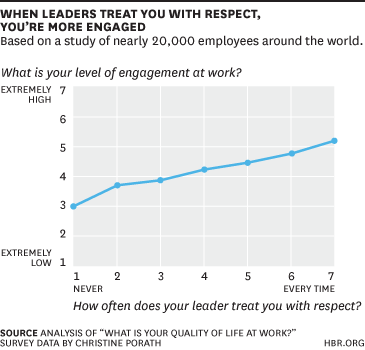The best leaders prioritize training the people they lead, which involves valuing and developing them to become better people and staff. By doing so, they enhance the organization's potential and cultivate future leaders.
Now, let's explore what it means to "value" and "develop." According to the dictionary:
- Value: to hold in high regard, respect, honor, and esteem
- Develop: to create something new, to foster growth through training and teaching
As a leader, when you value and develop others, your focus is on expanding their skills and abilities.
Value people enough to guide and mentor them, helping them reach their fullest potential.

It Requires Your Time to Make It Happen
It’s easy to say, “I’m on board. I’m doing that.” But is that truly the case?
Think about this: how much time do you actually invest in getting to know the people you lead? Are you aware of their strengths, weaknesses, talents, personal aspirations, and how they best work with others on the team?
If not, you may not be valuing your team members as much as you think you are.
When you commit to truly valuing and developing people, it will take time to understand these details for just one individual. But if you're like many high achievers, you might view this as a time-consuming task that isn’t worth the effort.
However, that mindset is misguided. You probably already know that employees who feel respected and appreciated are more likely to be satisfied with their work and perform at higher levels. Still, investing the time to value and develop people is essential for helping them grow and realize their full potential.
Two Essential Skills for Success
Whenever you choose to focus on helping people grow, you're engaging the two most important skills for any leader. Do you know what those two skills are?
Here they are—the two skills that many leaders aren’t taught to develop:
- Listening
- Asking Questions
At GR8 Results, we believe these are the most valuable skills a leader can possess. Clearly, when you decide to value and develop people, you’ll spend time listening and asking questions to better understand them.
These two skills are also critical when a leader undergoes a fundamental shift in how they approach their work. Unfortunately, this shift isn’t something most new leaders are explicitly taught, leading them to struggle or fail when they don't make this mindset change.
Without this shift, leaders often take on too much work themselves, failing to prepare for higher responsibilities within the organization. Even worse, it can lead to burnout and a loss of motivation. And you can’t truly value and develop people unless you make this shift.
The Essential Shift
Think about a new leader or reflect on when you first transitioned into managing others. Before your promotion, you were an individual contributor in the organization, excelling in your work. But once promoted, your role changed from being a doer to a supervisor. Unfortunately, many new leaders continue to operate as individual performers, focusing on doing good work themselves, without realizing the critical shift they need to make.
To become a great leader, you must SHIFT…
- FROM – doing good work
- TO – achieving great work through others.
While leaders still have tasks to complete, their mindset shifts to focusing on how to accomplish great work through the people they manage and lead. For instance, they spend time working with their team, helping them develop their own leadership capabilities for the future.
This shift also expands your leadership capacity, as it frees you to focus on strategic priorities rather than being caught up in day-to-day tasks.
The Benefits of Valuing and Developing People

That shift will also be noticeable in how others perceive you as a leader.
For instance, the research presented in the graph above is a great example of how valuing and developing people can make a significant impact. The study's title, “How often does your leader treat you with respect,” highlights a key point. You might agree that valuing and developing people naturally shows respect for them. However, some leaders dismiss this valuable insight, often because they adhere to a control-based approach to leadership. But let's take a look at the findings of this research:
When people felt respected by their leaders, they reported:
- 56% better health and well-being
- 89% greater job enjoyment and satisfaction
- 92% greater focus and prioritization
Sadly, the same study, which surveyed 20,000 employees, found that 54% of them didn’t regularly feel respected by their leaders.
This shows that respect, value, and appreciation are deeply connected. Now is the time to focus on what truly benefits the organization—valuing and developing people. Stop centering on yourself and instead learn to serve both the organization and the people you lead.
The good news is that when you respect, value, and develop people, you’ll see significant returns—like the benefits listed above. However, there is a price to pay, though it ultimately proves to be very beneficial for both you and your team.
So, what is this "price" or obstacle? It’s the same challenge that all leaders must overcome: your natural tendency to focus on yourself. When you do this, you risk neglecting the time and effort needed to encourage, value, and develop others. But when you shift your focus and commit to this effort, you help both individuals and the organization grow and thrive.
Google's Research About Their Managers
Finally, some interesting research from Google about their own managers. They did a broad survey of hundreds of managers and found the following were the 8 key behaviors, exhibited by the best managers.
- Is a good coach
- Empowers team and does not micromanage
- Expresses interest in and concern for team members’ success and personal well-being
- Is productive and results-oriented
- Is a good communicator—listens and shares information
- Helps with career development
- Has a clear vision and strategy for the team
- Has key technical skills that help advise team
As I see it, 5 or 6 of those behaviors tie directly to how you value and develop people.
If you believe the research, here are two important questions to answer. Will you start thinking about the people more and about yourself less? Will you take the time to value the people enough to help develop them?
Your answers help you know whether you are on the path to GR8 Results or not!
